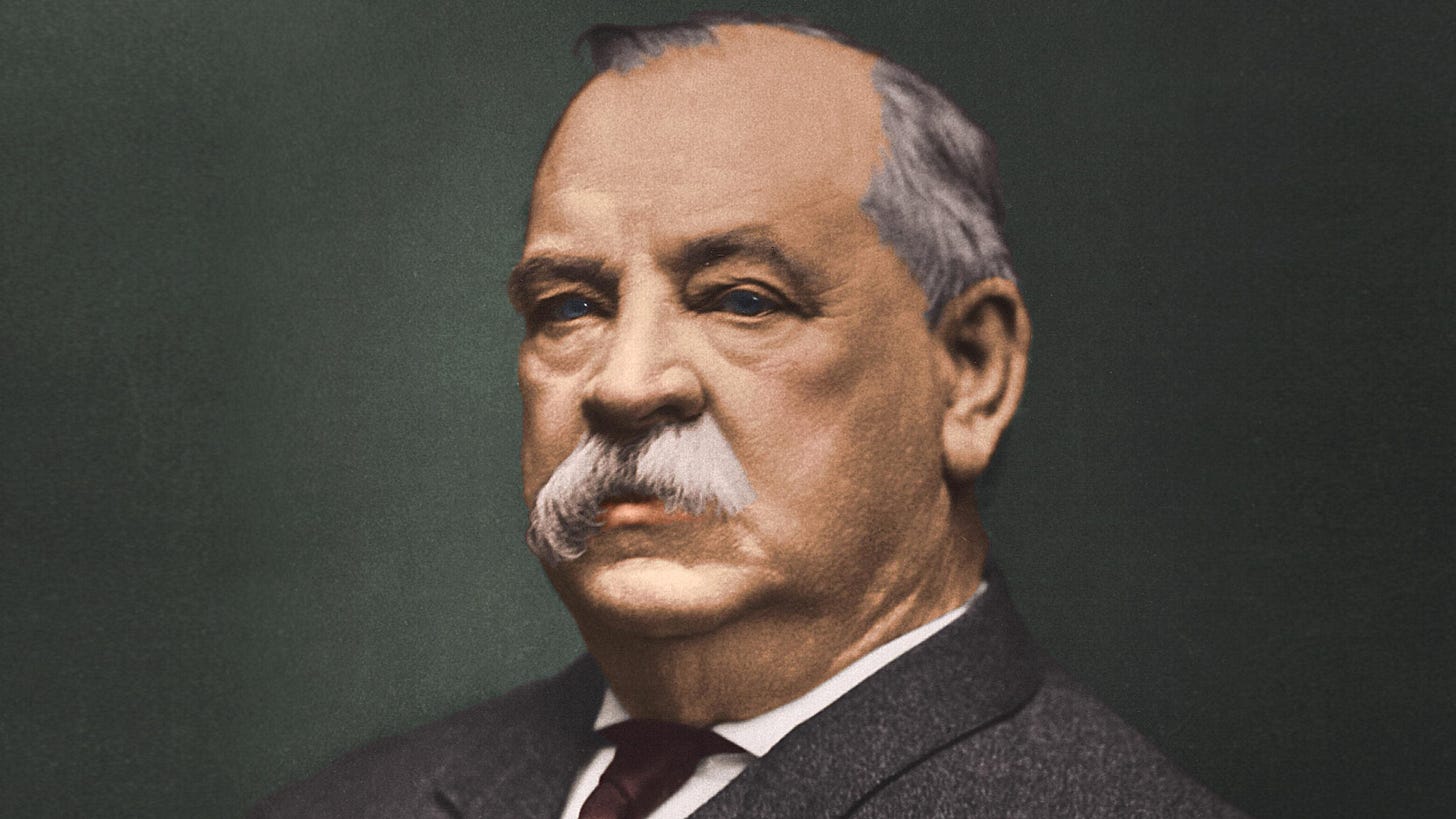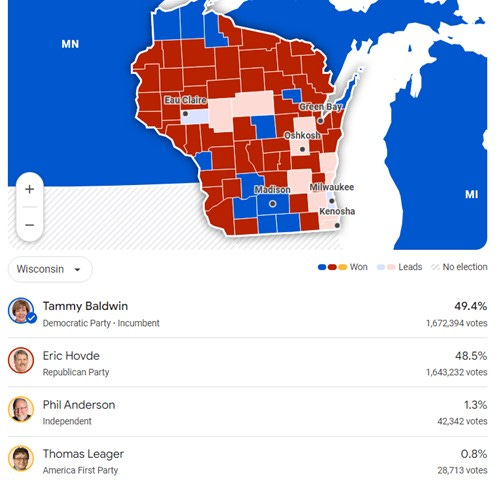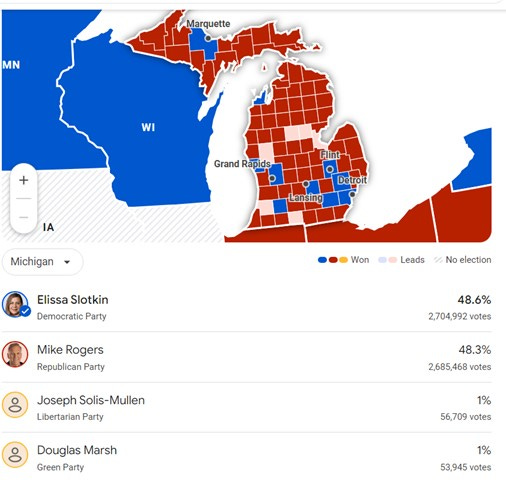A Disclaimer, on Steroids
I have always been interested in politics. I remember watching election returns when I was very young, even though I didn’t have a full picture of what was happening. More than elections, I have always been especially interested in presidential history. (I LOVED the p-volume in the World Book Encyclopedia.) This interest, combined with general political interests, is a potent mix. It can make you especially vulnerable to the highs and lows of what the American system often gives us.
Despite these interests, I have become utterly disgusted with what American politics has become. I cannot express how frustrated, angry, and grieved I am about the quality of our presidential candidates, unnecessary legislative gridlock, the inability to engage in good faith debate, the never-ending growth of the federal government—the executive branch particularly—and a thousand other things that comprise what we may call “the American political culture.”
I know there isn’t a golden age of politics. There is no singular moment we can return to in our nation’s history that would be free from deceit, self-interest, moral complexity, gamesmanship, incendiary rhetoric, and craven cost-benefit analyses. The most I could probably realistically hope for is more boring candidates who said little, kept their heads down, did their job, and then quietly went home after serving a term or two. Alas, I have no expectations of this happening.
So, when I write on political matters on this site, I hope readers will keep these background details and assumptions in mind. I am interested partly due to my own personal interests, but I’m also interested because being a Christian with American citizenship requires me to be observant and informed, to pray, to submit, respect, to sometimes speak, and occasionally to vote. But I refuse to be a cheerleader for any single candidate or party. They haven’t earned that.
Now then, we just had a national election. People were chosen to represent and serve us up and down the ballot. What remains to be said that hasn’t been said? (Seriously, what hasn’t been written or said already?)
Before sharing a few thoughts, how’s this for a brainteaser: Imagine Trump and Harris had tied with 269 electoral votes apiece. Yes, that could have happened. Read more here. Then the incoming Congress would choose the president. The House selects the President, and the Senate the Vice President. Imagine Congress coming back with a Trump/Walz unity ticket. Weird, right?
Now, onto the main course.

A Few Reflections on Tuesday’s Outcome
For most of this year I thought that Former President Donald Trump would defeat President Joe Biden, perhaps even handily. Once Vice President Harris entered the race and I took a look at how virtually every major powerful institution rallied around her, I thought she would win.
Then about four weeks ago I thought to myself (and said to a few friends), “I think Trump will win. This feels a lot like 2016.” Then, about two or three days before the election my spidey sense told me, “No, the pollsters have overcorrected in the polling to make Trump appear closer than he actually is. She’ll eek it out.”
Well, I was wrong. I suppose the main difference between me being wrong (only lately, mind you) and others being wrong is that I didn’t bet money on the election. I’m not a pundit, journalist, podcaster, or any other such thing. I’m just a semi-normal, politically interested guy trying to figure out what’s going on. It doesn’t hurt me to say I didn’t see Trump winning the popular vote, or Bernie Moreno defeating Senator Sherrod Brown in Ohio, or Dave McCormick defeating Senator Bob Casey in Pennsylvania. But those are three of the many interesting things that transpired.
I’ll take you back to last week’s newsletter when I laid out some various narratives that would unfold if Trump won.
1-If Trump wins, it’ll be because he ran a brilliant campaign and Harris ran a horrible campaign.
2-If Trump wins, it’ll be because half the country are racists, bigots, rednecks, and/or a host of other terrible things.
3-If Trump wins, it’ll be because Biden was just a drag on Democratic candidates writ large, that most Democratic nominees wouldn’t have prevailed.
4-If Trump wins, it’ll be because the country is, on the whole, more conservative than progressive.
This is where all the Monday morning quarterbacks come in. Those exasperated by how Trump spent recent weeks on the campaign trail now are tempted to say, “That was brilliant!” Was it? Did he win because of the last few weeks or despite them?
How about scenario #2, a favorite of Harris supporters? It’s getting harder and harder to maintain this when the people traditionally coded as racists, bigots, rednecks, etc. (i.e. white people) were joined by a larger share of African Americans, Hispanics, and more. Still, some of the loudest voices on the race issue will insist that this election was about race.
Moreover, a massive number of voters tell pollsters that they despised both candidates. The pundits and students of elections now call these “double-haters.” They broke for Trump, though they acknowledged that they didn’t like him.
Scenario #3 seems especially likely to me, even if it’s a much more complicated picture. It assumes that a fresh Democratic face who wasn’t tied to the current administration wouldn’t have had a better chance. This just doesn’t pass the smell test
Scenario #4 sounds like wishful thinking. Many of the same states that voted for Trump also voted to enshrine abortion rights into their state’s laws and/or Constitution. A few states which supported Trump voted in this cycle or the last one to legalize marijuana. Two states that voted for Trump legalized sports gambling or related initiatives. Moreover, Trump’s conservative credentials aren’t exactly clean and clear when it comes to abortion, debts and deficits, and a few other issues. Are we really sure America is as conservative as we think or hope?
Now onto some other miscellaneous observations (in no particular order).
Third party votes matter, though only in close elections in specific states, and more often, in tight Senate or House races. Just look at the impact third parties had on Senate races in Wisconsin and Michigan.
I haven’t dug into these races enough to know whether the absence of third parties would have benefited the Democrat or Republican candidates more, but on the surface, they seem consequential.
I was gratified to see former Senator Kelly Ayotte win the Governor’s race in New Hampshire. I’m still not sure why Republicans can be elected Governor in NH, but they can’t win Senate seats there anymore.
I was glad to see the so-called “last pro-life Senate Democrat,” Bob Casey, lose his Pennsylvania seat. Dave McCormick is an impressive guy.
I was surprised to see how much Vice President Harris underperformed in blue states, counties, and cities. There are tons of graphics floating around on the web to illustrate this, but I’ll point to some different figures: margins of victory across states.
Donald Trump received 60% or more of the popular vote in 11 states (ID, ND, SD, NE, OK, AR, LA, KY, TN, AL, MS). He received 70% or more of the vote in two additional states (WY and WV).
Conversely, Kamala Harris only received 60% of the vote share in four states (HI, MD, VT, MA). Granted, we’re still getting the vote count in from solid blue states like Oregon and Washington, so we’ll see where those vote totals end up. Moreover, she only won solid blue states like New Jersey, Minnesota, and New Mexico by roughly five points. She won New Hampshire, an increasingly blue state, by 2.5 points. I could go on, but I’ve said enough.
The analytics on this race are fascinating in so many ways, especially when we see how Trump increased his performance among nearly every demographic—meaning age groups, ethnicities, and more. One that struck me today was that he had a 13% vote advantage among first-time voters, which certainly includes a lot of young people.
Do these results say more about Trump or the electorate? Or to be more precise, the mood of the electorate? I tend to think the last of those three.
One of the great temptations we must resist in analyzing elections is to draw sweeping conclusions about why one or more things happened. Mono-causality is the great enemy of honest, accurate analysis. It’s never just one thing. Don’t fall for it. Jonah Goldberg is right: “Monocausal thinking makes idiots of geniuses and morons alike.”
Is Trump awesome, good, or right? Is the electorate increasingly conservative? Is Harris the worst presidential candidate in history? Be very careful about thinking you’ve got it figured out.
Every time a political party thinks it has the electorate figured out, they end up making a ton of errors in their next few steps. They overreach. They fall back into identity politics. They assume the formula that was successful for one campaign and/or candidate will be successful for the next. Politics never works that way!
Now, A Few Questions
I have a lot of questions echoing throughout my mind. I’ll share a few.
What about the Supreme Court? Justice Clarence Thomas is 76. Justice Samuel Alito is 74. These men are solid Justices, but they are ideological. Will they learn from Ruth Bader Ginsburg’s mistake? Will they say to themselves, “Stepping down in the next two years while Republicans have the Senate and White House will more likely ensure that a judge with my judicial philosophy will be appointed to succeed me?” Or, will they arrogantly say, “Let’s roll the dice. I’ve got 10 or 15 years left in me!”
I’m also wondering about the Southern Border. President-elect Trump has made many bold promises when it comes to bringing sanity and stability to our immigration policies. Will he? He had 2017 and 2018 with both houses of Congress. He didn’t get his wall built. He was better than Biden on the border, but not as perfect as he recounts. What will he do with the next two years, and potentially, both chambers of Congress?
I’m also asking if President-elect Trump would reexamine his pledge not to do something nationally on abortion. He has pledged not to sign any kind of national legislation. But what if a Republican-led House and Senate send him a ban for abortions somewhere between 12 and 24 weeks, following the pattern of European laws? Will he grow a conscience, and sign that bill into law?
What about the economy? Will President-elect Trump realize that you can’t tax cut and tariff your way to prosperity? Will he realize that our financial system cannot bear another decade of record debts and deficits and no entitlement reform?
How would Trump handle those convicted of crimes connected to January 6th? Will he unconditionally pardon them (as he has suggested he would), despite the Right’s fervent criticisms of Left-wing leaders turning a blind eye to crimes committed in major U.S. cities after George Floyd’s death? Will his presidency be more about taking vengeance on enemies and doing favors for supporters?
Actually, I have tons of questions! Let me add a couple more, the most important:
How will Christians who voted for Trump regard him during his next term, and how will those who didn’t regard him?
How will church leaders model respect, submission, prayer, and yes, sometimes prophetic critique? Will we improve upon where we failed to model these during the Biden presidency?
We have our work cut out for us!

Quotes of the Week:
The Christian believer is using reason and faith to get to her beliefs just as her secular neighbor is using reason and faith to get to hers. They are both looking at the same realities in nature and human life, and both are seeking a way to make the best sense of them through a process that is rational, personal, intuitive, and social. Reason does not and cannot operate alone.
Timothy Keller, Making Sense of God.
I reject the ubiquitous notion that writing shorter is necessarily better than writing longer, that less is always more. The sclerotic fixation on minimalism, which arose largely in imitation of Hemingway and Orwell, has crippled American writing for a century. Like all tools, concision is only as good as its use. Sometimes, shorter is better; often, the dictate to write less is misguided, misapplied, results in needlessly abrupt work that fails to capture the nuance and complexity inherent to any topic of human interest. Yes, time and attention are limited, but a short piece that does not adequately explain itself wastes all time and attention spent on writing and reading it. Stylistically, the brevity-above-all orthodoxy has inspired generations of writers who sound exactly the same, their voices defined by a clipped, artificial tenor, the tell-tale signs of writing in fear of peer opinion. Good writing does not emerge from insecurity that itself emerges from aesthetic conformity.
Freddie deBoer, “Shorter Writing is Not Better Writing: An Argumentative Treatise.”
Books I’m Reading Now/Still/Again:
Joshua Chatraw and Mark Allen, Apologetics at the Cross: An Introduction for Christian Witness.
Paul Gould, Cultural Apologetics: Renewing the Christian Voice, Conscience, and Imagination in a Disenchanted World.
Timothy Keller, Making Sense of God: Finding God in the Modern World.
Ronald Nash, Faith and Reason: Searching for a Rational Faith.
Parting Shot:
Be sure to be on the lookout for a special Churchatopia conversation later this week. I interview Joel Biermann about his view on the Sabbath as expressed in his recent book, Day 7: For Work, Rest, or Play.






